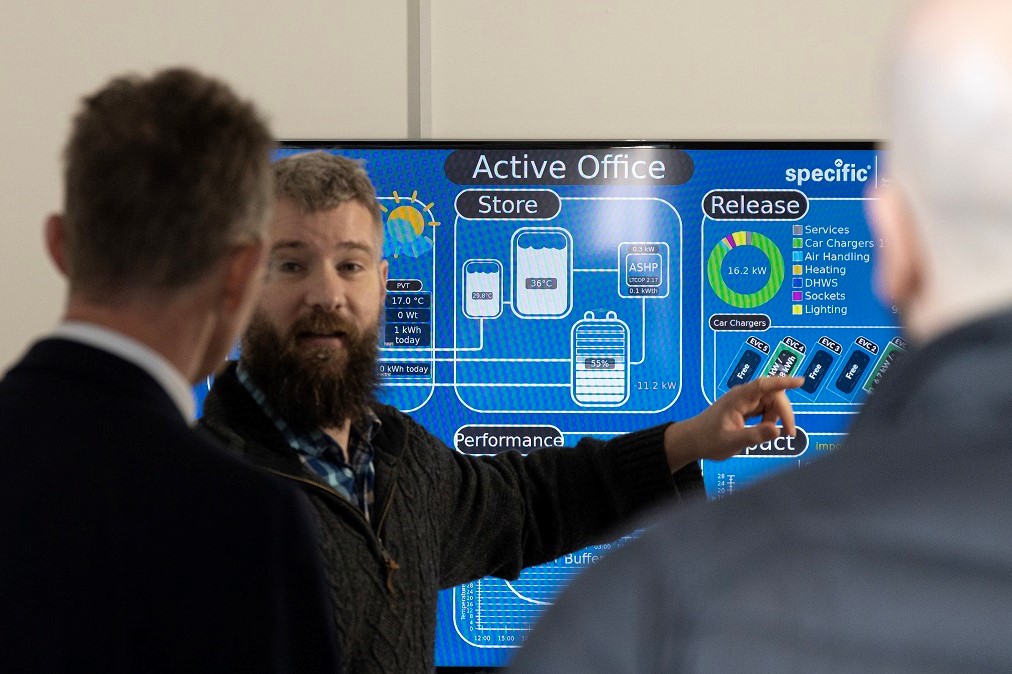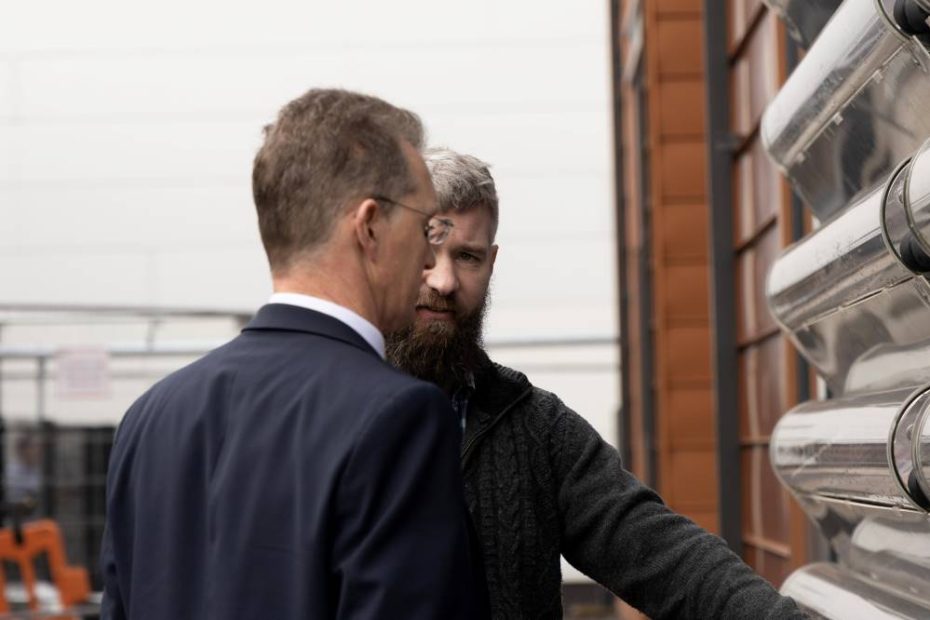SPECIFIC was pleased to welcome Secretary of State for Wales David TC Davies to see the Active Buildings, at a critical time for the project and its staff.
The future of SPECIFIC and 44 members of its staff is at risk, unless the UK Government acts now to replace EU funding.
Last week the Vice Chancellor of Swansea University Professor Paul Boyle said the situation had put the entire research and innovation sector in Wales on “the precipice of disaster”.
Following the UK’s withdrawal from the EU, the UK’s access to many large-scale European Union funding programmes comes to an end this year.
SPECIFIC has received £18million of European Regional Development Funding over the last six years. Amongst other impacts, this has enabled us to work with 257 businesses on 178 collaborative projects, which have led to over £37million private sector investment into these companies and the creation of 302 jobs.
Local distribution mechanism makes securing funding for regional and national collaboration almost impossible
By 2025, the UK Government has pledged to award £2.6 billion of replacement funding through its UK Shared Prosperity Fund (UKSPF), which will be administered by the Department for Levelling Up, Housing and Communities, led by Michael Gove.
However, the mechanism for distributing these funds locally makes securing funding for large-scale collaboration at cross-regional and pan-Wales scale almost impossible. There is no replacement funding of a nature that will support the collaborative approach to research and innovation which has previously enabled Wales to punch well above its weight in terms of research impact.
Universities UK, which represents universities across the country, recently warned that jobs, talent and knowledge will be lost across the UK, particularly in those regions prioritized by UK Government within the Levelling Up agenda, if there is no urgent bridging funding.
All momentum could be lost in areas of innovation identified as a priority
Professor Dave Worsley, SPECIFIC’s principal investigator, has been heavily involved in several EU-funded projects in Wales focussed on decarbonisation of industries like steel and construction.
He says the potential waste after so much investment seems completely baffling. “All momentum could be lost, just when we have the potential to accelerate the change to Net Zero. You think you’ve built a strategic army to deliver and they’re all marching in the same direction, but now suddenly the mission is entirely different and the teams could disperse.”
Professor Paul Boyle, Vice Chancellor of Swansea University, where 240 jobs are at risk, said “We are on the precipice of a disaster for research and innovation in Wales, which only the UK Government can now prevent.
“Weeks from now, we will begin to see EU funding cease for many major research projects, which will impact jobs, talent, and local innovation and skills capability. And while this is a UK-wide issue, the impact on Swansea and Wales will be especially severe.
“Many of the projects at risk also provide high-quality skills training to Welsh business. They encourage growth in local employment and productivity, which is all the more vital in areas of economic disadvantage within the Welsh regions. Perversely, they include pioneering work in areas of innovation which the UK Government has rightly identified as top priority, such as digital transformation and the push for Net Zero.
The cliff edge is looming for all this vital work. Now is the time for UK Government to help the sector step back.”


